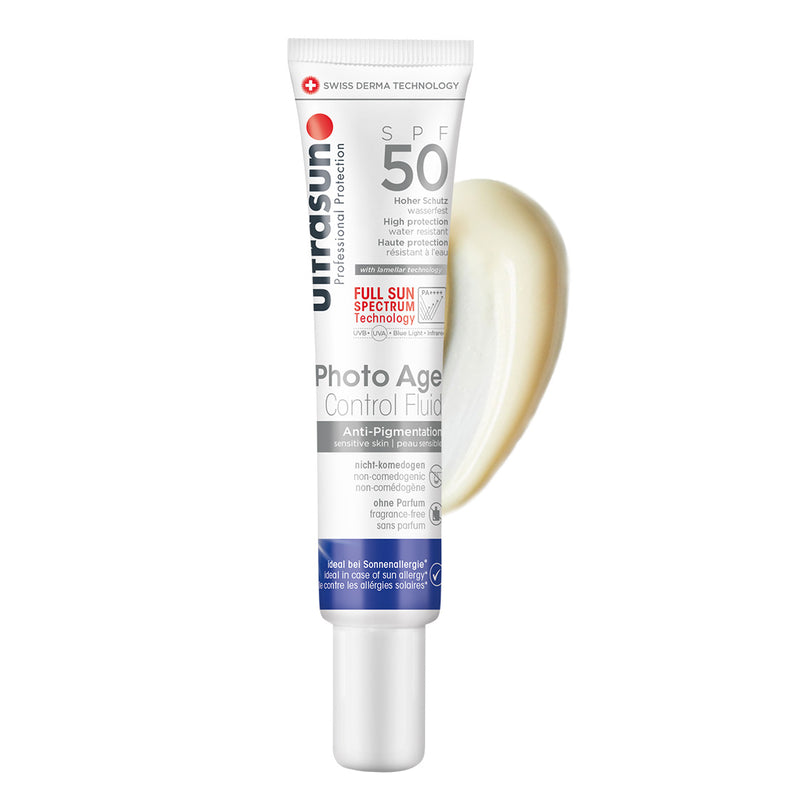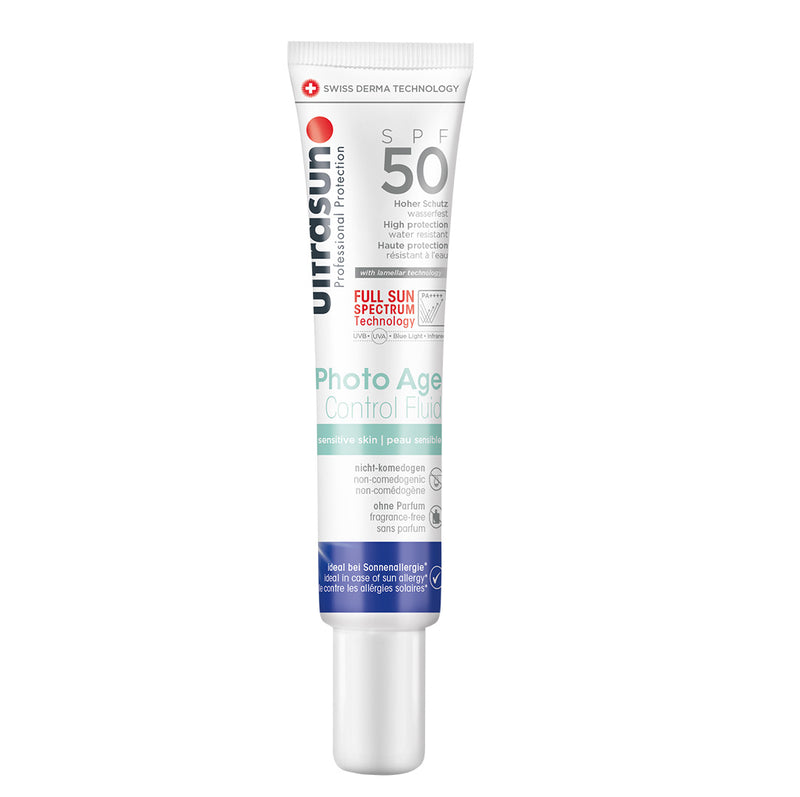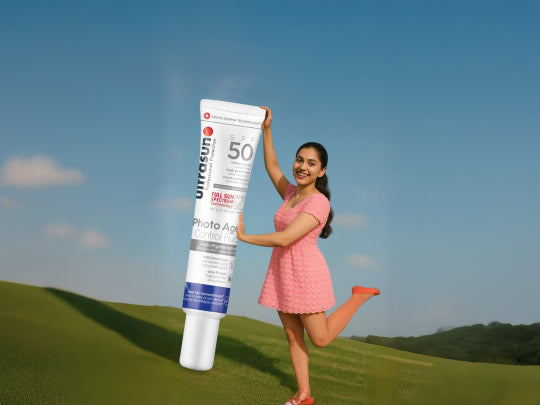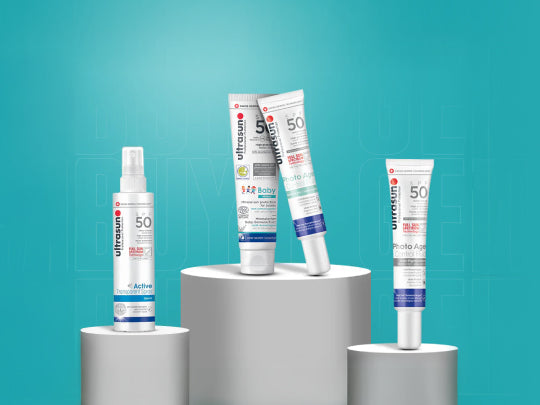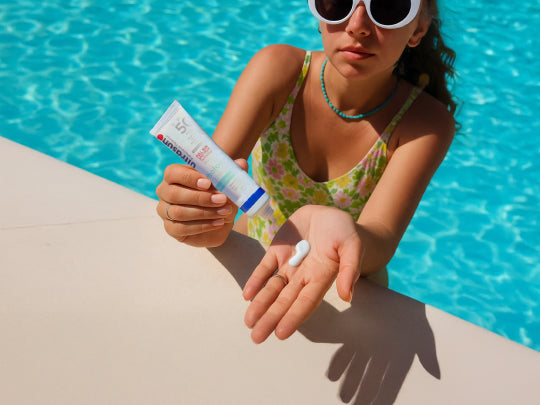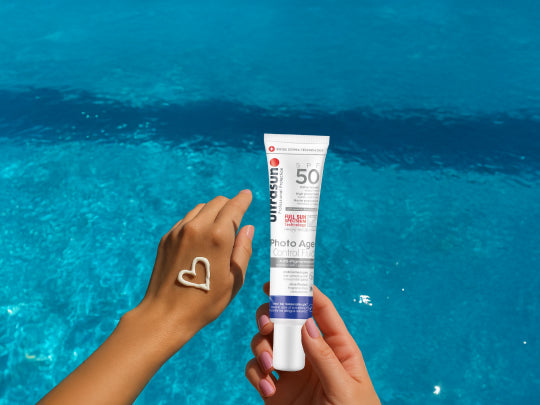There have been concerns raised about does sunscreen cause acne breakouts. However, Sunscreen is widely recognized as an essential tool in protecting our skin from the harmful effects of the sun's UV rays. In this article, we will explore the relationship between sunscreen and acne to shed light on this topic and what top dermatologists have to say regarding this.
The relationship between sunscreen use and acne is a topic that has been discussed among dermatologists. Here is a general perspective that many dermatologists offer:
Dr. Ranella Hirsch, a board-certified dermatologist, states that sunscreen use is essential for protecting the skin from harmful UV radiation and preventing skin damage and skin cancer. While some individuals may experience breakouts or skin irritation from certain sunscreen formulations, it is not a universal issue. Dr. Hirsch advises that it is crucial to find a sunscreen that works well for your skin type, as there are many options available with different formulations.
Understanding Acne
Know a days, Acne is a very common skin condition that is affecting millions of people worldwide. It can be characterized by the presence of pimples, blackheads, and whiteheads. While the exact causes of acne can vary from person to person, factors such as excess oil production, clogged pores, bacteria, and inflammation play significant roles in its development.

Do Sunscreen cause Acne: What dermatologist say?
There is a lack of scientific evidence to support the claim that sunscreen directly causes acne breakouts. The confusion often arises due to the misinterpretation of acne breakouts that occur after sunscreen application. It is essential to understand that acne breakouts can be influenced by various factors, and attributing them solely to sunscreen might be misleading.
According to dermatologist Dr Geetika Mittal Gupta, "While sunscreen is essential to protect your skin, some formulas are too heavy and can cause your pores to clog, leading to breakouts. So, Find a sunscreen that's made for acne-prone skin"
Dr. Joshua Zeichner, a board-certified dermatologist, explains that sunscreen can occasionally cause acne-like breakouts, especially in individuals who have oily or acne-prone skin. Some chemical sunscreen filters, such as avobenzone or octisalate, can potentially clog pores and lead to breakouts in susceptible individuals. However, Dr. Zeichner emphasizes that not all sunscreens cause acne, and there are non-comedogenic (non-pore-clogging) options available, including sunscreens with mineral-based filters like zinc oxide or titanium dioxide.
Ingredients in sunscreen that cause acne
When it comes to sunscreen formulations, there are two main types: chemical sunscreens and mineral sunscreens. Chemical sunscreens contain ingredients such as oxybenzone and avobenzone, which work by absorbing UV rays. While some individuals with acne-prone skin may find these ingredients irritating, it is important to note that they are not directly linked to acne breakouts.
On the other hand, mineral sunscreens contain zinc oxide and titanium dioxide, which physically block UV rays. These ingredients are generally well-tolerated by acne-prone skin, but certain formulations may contain pore-clogging substances, so caution should be exercised.
Choosing the Right Sunscreen for Acne-Prone Skin
For individuals with acne-prone skin, selecting the right sunscreen is crucial. Look for non-comedogenic options specifically designed to avoid clogging pores. Additionally, opt for oil-free and lightweight formulations that won't weigh down the skin or contribute to excess oil production. Ensure that the sunscreen provides broad-spectrum protection against both UVA and UVB rays, and consider using a product with an SPF of 30 or higher for adequate sun protection.
Recommended Sunscreen by dermatologist for Acne prone skin:
Ultrasun Photo age control fluid sunscreen is the most effective and also recommended by dermatologist for sensitive, oily and acne prone skin. This sunscreen product is Non comedogenic so it will not clog your pores. It protects your skin from harmful sun rays with SPF 50 and PA ++++ rating. Ultrasun is a Premium Swiss Brand and the sunscreen is sold in more that 20 countries including India.

Sunscreen Application Tips for Acne-Prone Skin
Proper application of sunscreen can make a significant difference for those prone to acne breakouts. Before applying sunscreen, it is important to prepare the skin by cleansing it thoroughly to remove excess oil and impurities. When applying sunscreen, pay extra attention to acne-prone areas and use gentle, upward motions. Remember to cleanse the skin regularly and reapply sunscreen as needed to maintain its effectiveness throughout the day.
Other Factors Affecting Acne Breakouts
While sunscreen itself is not a direct cause of acne, there are other factors that can contribute to breakouts during sun exposure. Hormonal changes, such as those occurring during menstrual cycles, can influence acne development. Additionally, sweat and humidity during outdoor activities can exacerbate acne symptoms. It's also important to consider the interaction between sunscreen and other skincare products, as certain combinations may lead to skin irritation or clogged pores.
Balancing Acne Prevention and Sun Protection
To strike a balance between acne prevention and sun protection, it is advisable to consult a dermatologist. They can provide personalized advice on managing acne and recommend suitable sunscreen options. Some sunscreen formulations even incorporate acne-fighting ingredients, combining the benefits of sun protection and acne prevention. Developing a comprehensive skincare routine that addresses individual concerns is essential for maintaining clear skin while staying protected from the sun.
FAQs about sunscreen and acne breakouts
Can sunscreen cause cystic acne?
While sunscreen is unlikely to directly cause cystic acne, individual sensitivities and the presence of other contributing factors may influence its development.
Does excessive sunscreen usage contribute to acne breakouts?
Using an excessive amount of sunscreen does not necessarily lead to increased acne breakouts. However, it is important to cleanse the skin properly after sun exposure to prevent the build up of sweat and sebum, which can contribute to acne development.
Is sunscreen generally bad for acne-prone skin?
Sunscreen is not inherently bad for acne-prone skin. By selecting the right sunscreen with non-comedogenic and lightweight properties, individuals can protect their skin from the sun without aggravating acne symptoms.
Does sunscreen actually increase acne?
Scientific evidence does not support the claim that sunscreen increases acne. However, certain ingredients in specific formulations may irritate acne-prone skin in some individuals. Understanding personal sensitivities can guide the selection of appropriate sunscreen products.
Does sunscreen cause open pores?
No, sunscreen does not cause open pores. The size of pores is primarily determined by genetics, excess sebum production, skin elasticity, and aging. While certain sunscreen formulations may feel heavy or greasy on the skin, resulting in the temporary appearance of clogged or enlarged pores, this is not directly caused by sunscreen itself.
Can sunscreen help improve the appearance of acne scars?
Yes, sunscreen can be beneficial in improving the appearance of acne scars. Acne scars are often caused by inflammation and damage to the skin. When exposed to the sun's UV radiation, scars can become darker and more noticeable due to increased melanin production. Sunscreen plays a crucial role in protecting the skin from harmful UV rays, preventing further damage, and allowing the scars to heal properly.
Conclusion
Sunscreen plays a crucial role in maintaining overall skin health by protecting against the damaging effects of UV rays. While concerns have been raised about sunscreen causing acne breakouts, scientific evidence does not support this claim. Understanding the factors that contribute to acne development and selecting the right sunscreen for acne-prone skin is essential. By incorporating sunscreen into a comprehensive skincare routine and seeking guidance from a dermatologist, individuals can maintain clear, healthy skin while effectively safeguarding themselves from the sun's harmful rays.
Reference: https://www.webmd.com/skin-problems-and-treatments/acne/features/acne-lifestyle-changes


